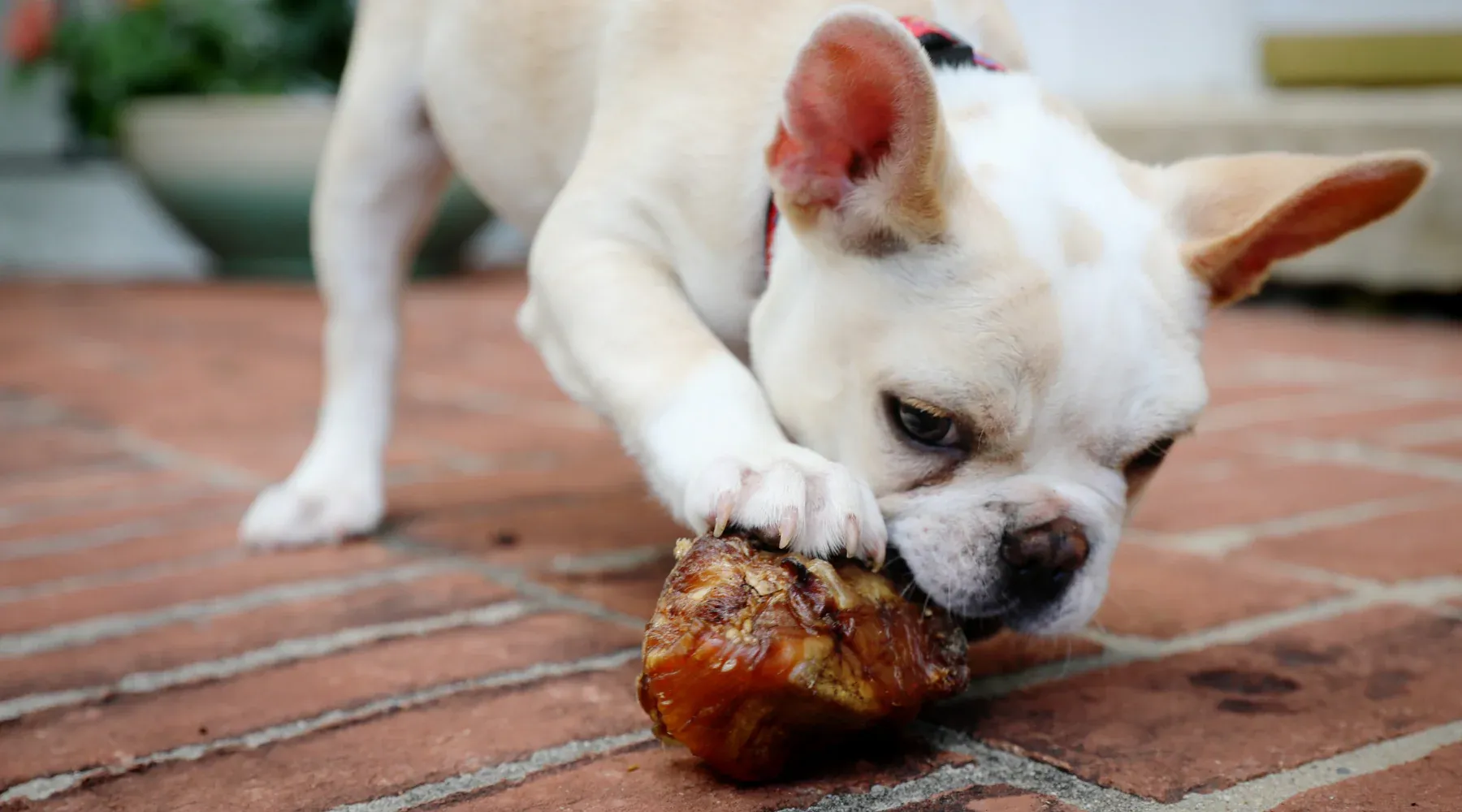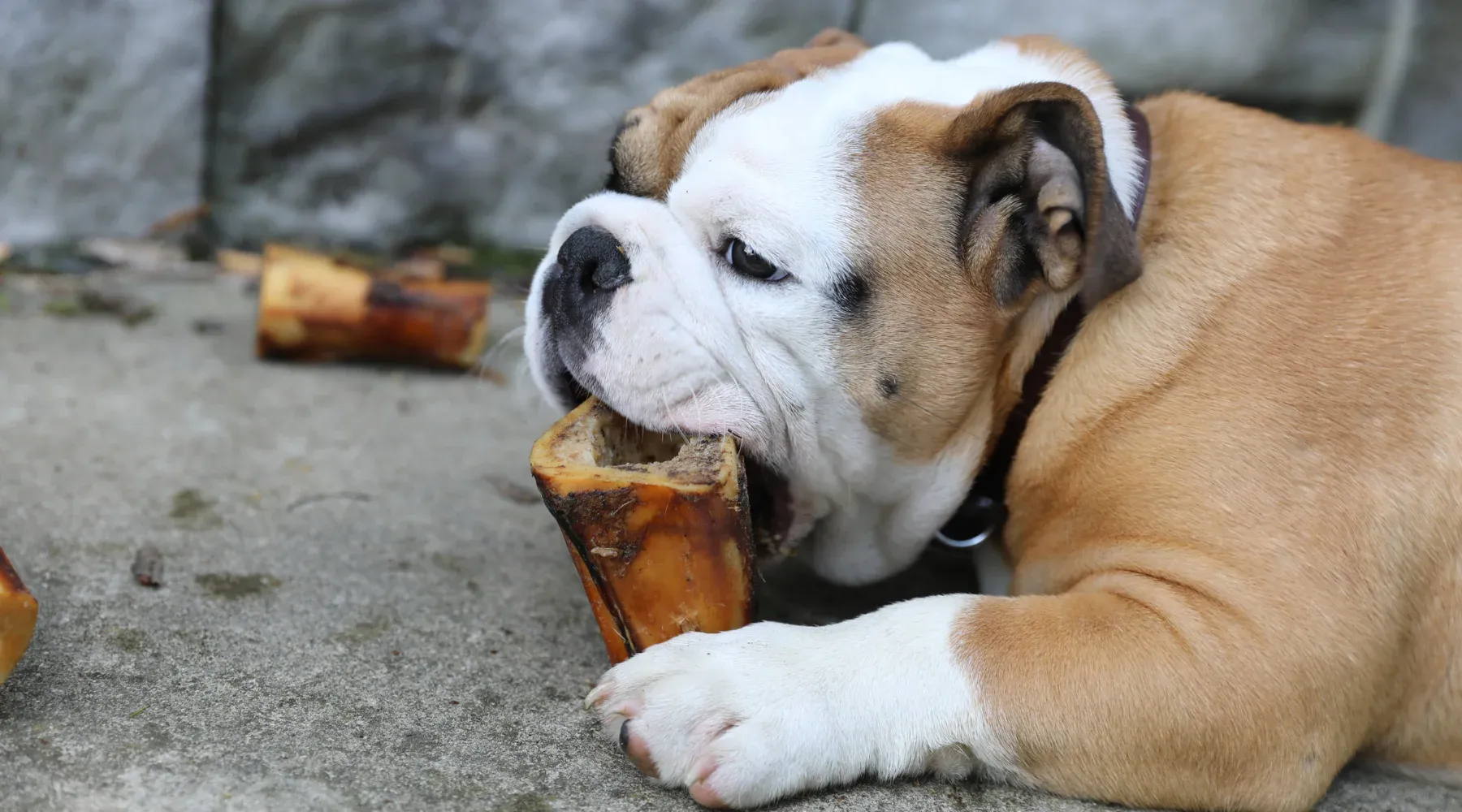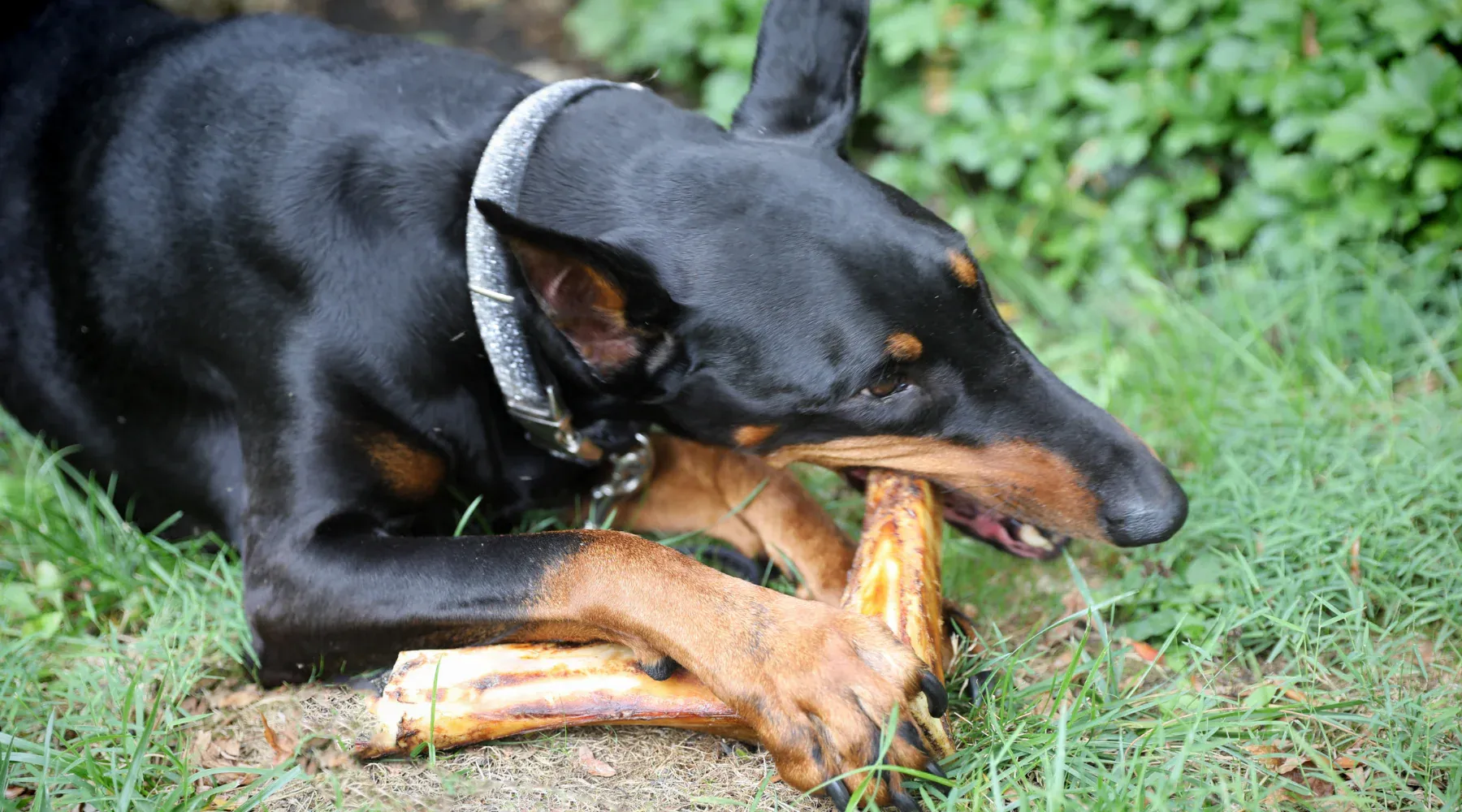Watching your dogs play can be heartwarming until an aggressive chewer turns a simple toy into a hazard. Like many pet owners, I once dealt with this firsthand when my large dog, Bruno, demolished bones in seconds, leaving sharp shards that posed real dangers. If you’re searching for the safest bone for aggressive chewers, you’re not alone—many owners face choking risks, digestive issues, and tooth damage from poor choices. This guide breaks down the options, ruling out the unsafe ones and highlighting what truly works based on real experience and expert insights.
For dogs with powerful jaws, durability and safety go hand-in-hand. Common chews often fail quickly, but long lasting dog bones for aggressive chewers can make a difference. Let’s explore why most popular bones fall short and discover the superior alternative.
 What’s The Safest Bone For Aggressive Chewers?
What’s The Safest Bone For Aggressive Chewers?
Why Rawhide Isn’t Safe for Aggressive Chewers
Rawhide chews line store shelves, but they’re a poor fit for power chewers. These treats swell in the stomach, expand unpredictably, and break into large pieces that dogs gulp down. Vets frequently warn about the risks: choking incidents are common, and undigested chunks can cause intestinal blockages requiring surgery.
Chemicals used in processing rawhide raise further concerns, as they may leach into your dog’s system without providing meaningful nutrition. Aggressive chewers destroy them too fast to gain dental benefits like plaque removal. Skip rawhide—it’s designed to disintegrate, not endure.
 Dog bones for large dogs aggressive chewers.
Dog bones for large dogs aggressive chewers.
Synthetic Bones: Durable but Questionable
Nylon, rubber, and plastic bones promise longevity, often fortified with vitamins for appeal. However, they come with drawbacks that make them unsuitable as the safest bone for aggressive chewers. Pieces can shear off, creating ingestion hazards or microplastic buildup in the gut.
Artificial flavors and colors add no real value, mimicking nutrition without delivering it like natural sources. Even “durable” synthetics crack under relentless gnawing, leading to sharp edges. For long-term health, they’re not ideal—your dog’s instinctual chewing needs better.
Wood Pulp Chews: Natural but Risky
Wood pulp bones mimic sticks dogs love in nature, earning points for simplicity. Yet, veterinarians advise against them due to splintering, especially for aggressive chewers who reduce them to hazardous fragments in minutes. These lack nutrition entirely, serving only as fillers without protein, fats, or minerals.
While less harmful than synthetics, they damage teeth and gums over time. They’re a step up from rawhide but far from safe for daily use in powerful jaws.
Raw Marrow Bones: Nutritional but Bacteria-Ridden
Raw beef marrow bones offer wild-like appeal with rich fats and minerals, supporting joint health via glucosamine. However, bacterial risks like Salmonella make them impractical for indoor dogs—they’re messy and contagious via licks. Splintering and blockages remain issues for aggressive types.
Always an outdoor-only option under supervision, but hygiene concerns persist for families.
Cooked Bones: A Preparation Gamble
Home-cooked bones turn brittle or too soft depending on method, risking fractures or tooth breaks. Properly slow-cooked by pros? Potentially viable, but variables abound. Boiled broth bones are off-limits post-cooking.
Professionals control temperature for safety, but consistency varies.
Conventionally Raised Marrow Bones: Better, Yet Flawed
These outperform synthetics with natural density and nutrition, but factory farming taints them. Grain-fed cattle yield higher saturated fats, fewer Omega-3s, and ethical issues like overcrowding. Grass-fed alternatives boast 6x more Omega-3s and superior protein, per studies like those on WebMD.
For optimal health, welfare, and safety, they’re not the top pick.
Safe dog bones for aggressive chewers prioritize quality sourcing.
 Beef Knee Cap Bones for Dogs
Beef Knee Cap Bones for Dogs
The Safest Bone for Aggressive Chewers: Grass-Fed Marrow Bones
After testing dozens, grass-fed marrow bones—professionally slow-cooked—emerge as the winner. All-natural, no additives, they withstand power chewing without splintering. Packed with collagen, chondroitin, vitamins, and healthy fats, they aid joints, teeth, and mental well-being by satisfying gnawing instincts.
Key benefits include dental cleaning through scraping plaque and stress relief. Tailor by size for safety:
Small Dogs (Up to 15 lbs)
Kneecaps or thin femur slices suit tiny jaws. My terrier thrives on these single-ingredient options, holding them paw-steady for extended sessions.
Medium Dogs (16-50 lbs)
Center-cut marrow provides balanced resistance. They endure hour-long chews, preventing quick wear-down.
 Filled Dog Bones for Medium Dogs
Filled Dog Bones for Medium Dogs
Best chew bones for french bulldog puppies align well here for similar breeds.
Large Dogs (50+ lbs)
Knuckle or shank bones match monster jaws like Bruno’s. Dense yet tooth-safe, they last multiple sessions.
 Beef Marrow Bones for Large Dogs
Beef Marrow Bones for Large Dogs
tough dog toys for chewers uk complements for variety, though bones excel.
Supervise always, discard worn pieces. Available via trusted retailers like Amazon and Walmart.
best dog toy for super chewer for non-bone alternatives.
Final Thoughts on Safe Chewing
The safest bone for aggressive chewers is a properly prepared grass-fed marrow bone—durable, nutritious, and instinct-fulfilling. Avoid rawhide, synthetics, and risky naturals to prevent emergencies. Consult your vet for breed-specific advice, and rotate chews for balanced oral health.
Ready to upgrade? Stock up on size-appropriate grass-fed marrow bones and watch your power chewer thrive safely.
References:
- WebMD: Grass-Fed Beef Benefits (webmd.com/diet/grass-fed-beef-good-for-you)
- Mill Creek Veterinary: Risks of Stick Chewing (millcreekvet.com/dogs-shouldnt-chew-sticks)
- K9 Connoisseur Testing and Product Data
